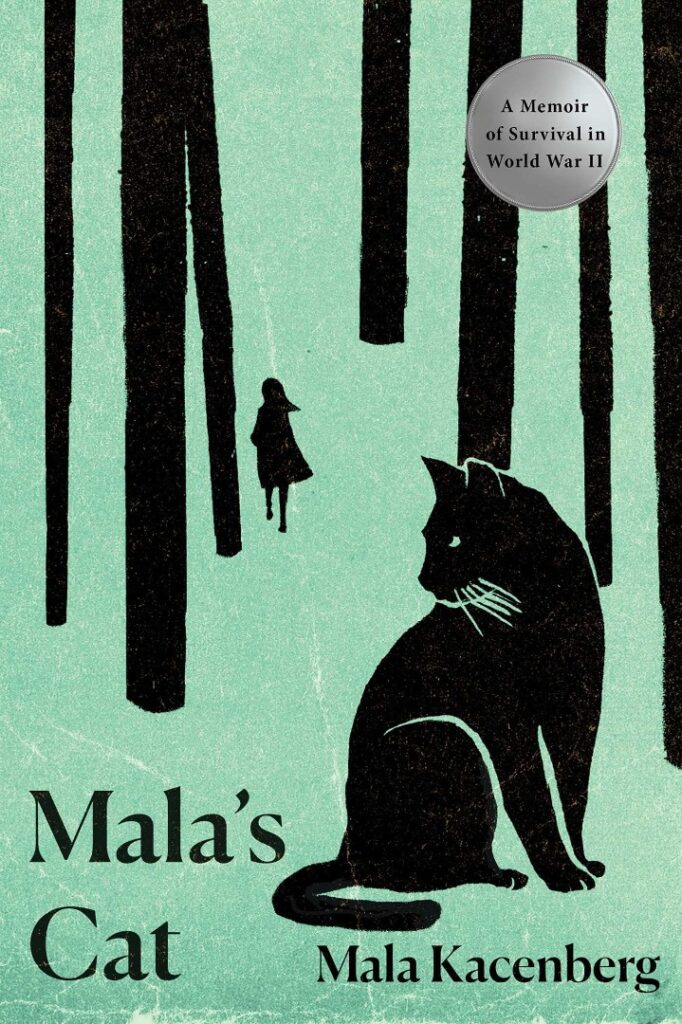Published: 4 January 2022

By Mala Kacenberg
In the woods outside Tarnogrod, Poland, in October 1942, an orphaned 14-year-old Jewish girl and her cat hide in the shadows between fallen tree trunks while a pair of SS men lounge nearby, taking whiffs of forest air, eating biscuits, drinking wine, singing victory songs and gloating over the jewelry they’ve collected from their victims that day: “Yes, they will be lovely presents for our wives.” Finally the SS men mount their horses and ride off, not knowing they’ve been watched, not imagining that the person who saw them was recording everything in her mind to be documented later, and surely not conceiving the thought that occurs to this solitary girl as she hears them singing: “I felt like taking some branches and hitting them on the backs of their heads. I felt like hitting them many times — one for every person they had killed or tortured.”The observer is Mala Szorer (the future Mala Kacenberg), whose six-year fight for survival is the subject of her recently republished memoir (the more aptly titled original, “Alone in the Forest,” was published by CIS in 1995). Despite the difficulties that inhere in Holocaust memoir — we believe we know this history, and its subject matter defies language — “Mala’s Cat” is fresh, unsentimental and utterly unpredictable. (It is not in any real way about a cat, though cat lovers won’t be disappointed: You, too, will be satisfied by the cleverness, resourcefulness and fidelity of Mala’s feline companion, Malach, whom she fancies to be her guardian angel.)After she witnesses the coldblooded killing of her older brother and, soon afterward, the violent roundup and deportation of her family and of every Jewish person in her town, Mala escapes into the forest and fends for herself for months, relying on the kindness of residents of the surrounding towns for food and clothing. (Those residents are equally likely to turn Jews over to the Nazis, a phenomenon Mala witnesses more than once.) When cold weather threatens, Mala adopts a false Christian identity and joins a forced labor detail bound for Germany, where she hides in plain sight as a maid in a small restaurant-hotel until the end of the war in Europe. Source News York times